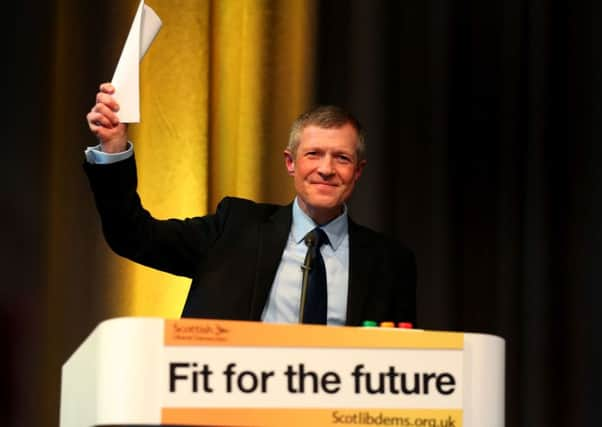Willie Rennie would invest income tax rise in education


The party has unveiled controversial plans to raise income tax by one pence in Scotland. Most of the £475 million raised will go on an annual “pupil premium” scheme costing about £170 million, Mr Rennie told Lib Dem delegates at the party’s conference in Edinburgh yesterday.
Primary schools would get £1,400 for every child who needs extra support, while £900 would go to secondary schools for each student from a deprived background.
Advertisement
Hide AdAdvertisement
Hide AdThe scheme, which is already in place in England, would go towards extra tuition for pupils, homework classes or equipment.
“Every school gets money for children from poorer backgrounds - and look at what that will mean,” he told delegates yesterday.
“A primary school in Aboyne could get £43,000 more.
“In Dunoon, Woodhill in Bishopbriggs, East Craigs in Edinburgh, Castlehill in Cupar, Dingwall, Papdale in Orkney, Eyemouth. All could get more then £60,000.”
Now Holyrood has the ability to set a Scottish rate of income tax, the Liberal Democrats argue the levy should be raised in a bid to tackle the attainment gap between pupils from different backgrounds.
The party has already pledged the “penny for education” will be spent on expanding nursery care, repairing colleges, preventing school cutbacks and a pupil premium.
“This is how you close the attainment gap - by making the investment, by giving the life chances, by backing up your words with action,” he added.
